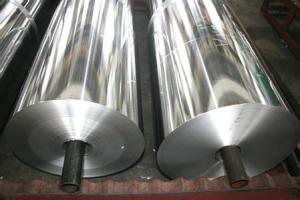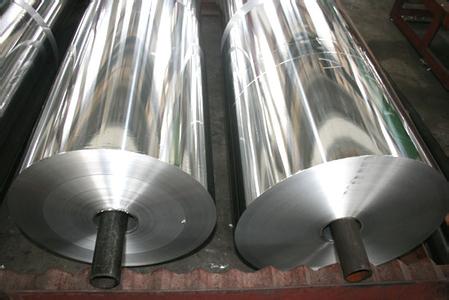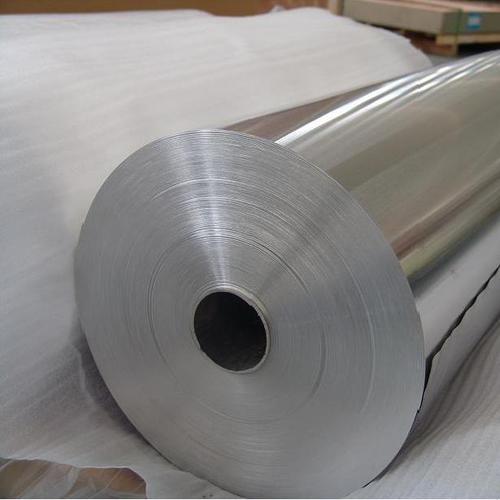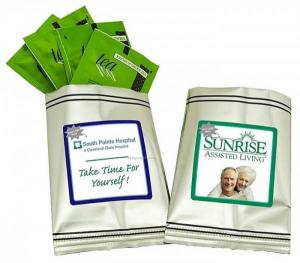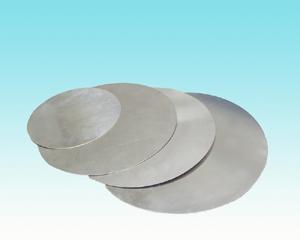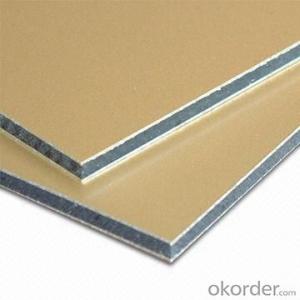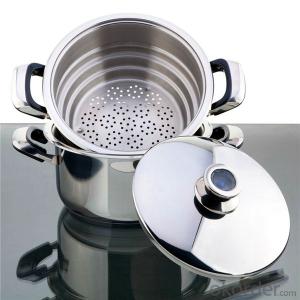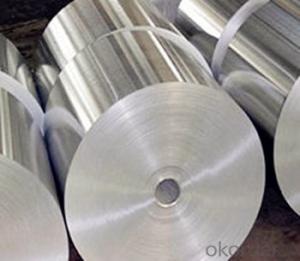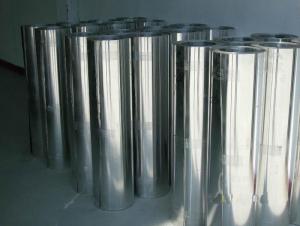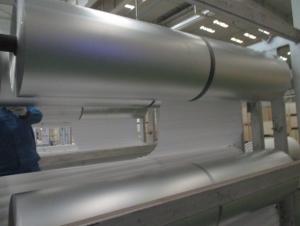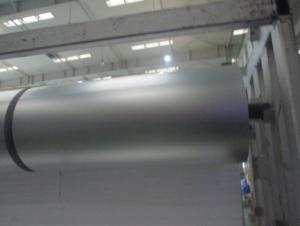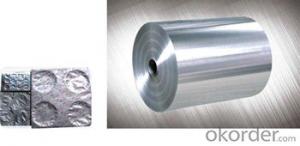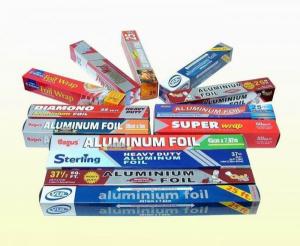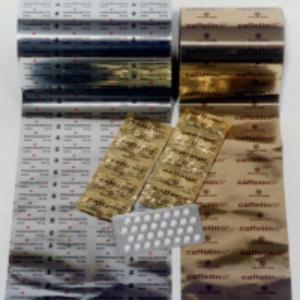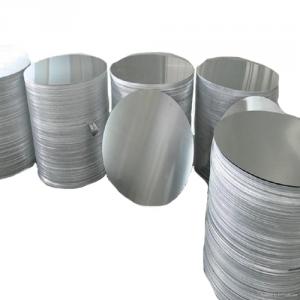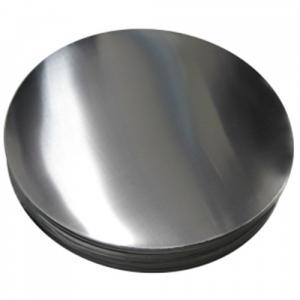High Quality Aluminum Foil
- Loading Port:
- China Main Port
- Payment Terms:
- TT or LC
- Min Order Qty:
- -
- Supply Capability:
- -
OKorder Service Pledge
OKorder Financial Service
You Might Also Like
1.Structure of Aluminum Foil
Often referred to as tin foil, is aluminium prepared in thin metal leaves with a thickness less than 0.2 mm (7.9 mils); thinner gauges down to 6 micrometres (0.24 mils) are also commonly used. In the United States, foils are commonly gauged in thousandths of an inch or mils. Standard household foil is typically 0.016 mm (0.63 mils) thick, and heavy duty household foil is typically 0.024 mm (0.94 mils). The foil is pliable, and can be readily bent or wrapped around objects. Thin foils are fragile and are sometimes laminated to other materials such asplastics or paper to make them more useful. Aluminium foil supplanted tin foil in the mid 20th century.
2.Main Features of the Aluminum Foil
1, Soft and easy to use.
2, Insolation;
3, Household.
4, High Quanlity & Reasonable Price;
3. Aluminium Foil Images:
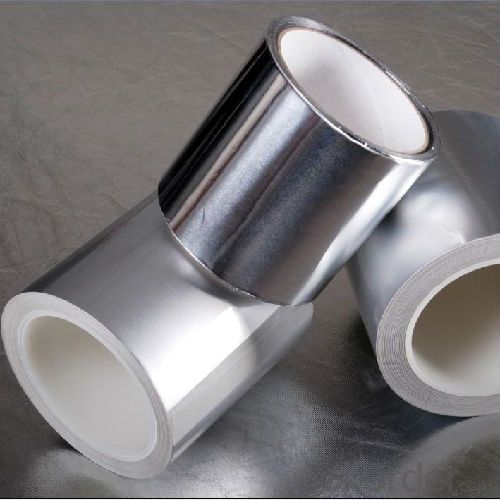
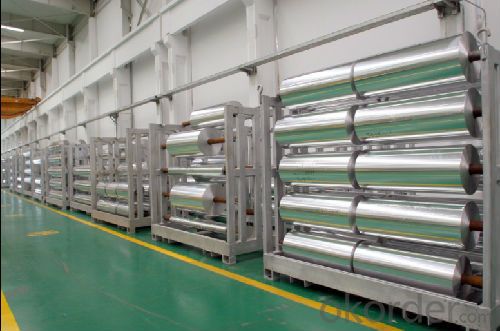
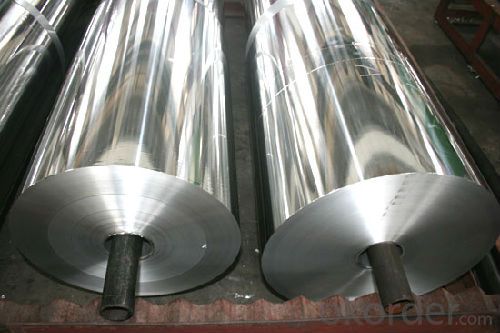
4. Aluminium Foil Specification:
Product application range:
Suitable for: Tobacco, food, beer, beverage, decoration, electric cable, electrolytic capacitor, medicine and air-conditioner.
Alloy: 1070\1060\1050\110\1200\1145\1235\3003\3102\8011\8011A\8079\8006
Temper:0/H14\H16\H18\H26\H24\H22
Thickness: 0.006mm_0.2mm
Width: 75 mm-1410 mm
Coil inner diameter: 75.00\ 76.20\ 150.00\ 200.00mm
Aluminum foil coil outer diameter:100 mm-1000 mm
Industry | Type | Typical thickness (mm) | Processing method | Usage |
Packing | Food | 0.006-0.009 | Compound paper, plastics, thin film, embossing & colorizing, printing | Candy, milk and milk product, powder food, drink, tea, bread and all kinds of snack food |
Tobacco | 0.006-0.007 | Compound paper, colorizing, printing | Internal and external packing for cigarette | |
Medicine | 0.006-0.02 | Compounding, coating, printing | Tablet, granular formulation | |
Cosmetics | 0.006-0.009 | Compound printing |
| |
Bottle caps | 0.011-0.2 | Printing, scouring printing | Bottle caps, the beer bottle, the fruit juice bottle seal, all kinds of trademarks, etc. | |
Daily use | Household | 0.01-0.2 | Small coiling | Packing for family food etc. |
Utensils | 0...011-0.1 | Molding processing | Food utensils, coal gas hood, ashtray and all kinds of utensils | |
Electrical equipment industry | electrolytic capacitor | 0.015-0.11 | Eroding in the special medium | electrolytic capacitor |
Electrolytic capacitor | 0.006-0.016 | Liner oil paper | capacitor | |
Radiator | 0.09-0.2 | Punching Fin | All kinds of air conditioning radiators | |
Electric cable | 0.15-0.2 | aluminium plastics compound | Electric cable wrap | |
Construction industry | Heat-insulating material | 0.006-0.03 | compound materials | Heat-insulating material for house, pipeline etc. |
Decorating board | 0.03-0.2 | Paints coated compound materials | Decorating board for construction use | |
Aluminium plastic pipeline | 0.2 | Compound polyethylene plastic | All kinds of pipelines | |
Special specification | Air conditioning foil | 0.105-0.115 | 8011 H22 O |
|
Wine banner foil | 0.0105-0.0115 | 8011 O |
| |
Foil for medicine | 0.02-0.025 | 8011 H18 |
5. FAQ:
①How about your company?
A world class manufacturer & supplier of castings forging in carbon steel and alloy steel,is one of the large-scale professional investment casting production bases in China,consisting of both casting foundry forging and machining factory. Annually more than 8000 tons Precision casting and forging parts are exported to markets in Europe,America and Japan. OEM casting and forging service available according to customer’s requirements.
②How to guarantee the quality of the products?
We have established the international advanced quality management system,every link from raw material to final product we have strict quality test;We resolutely put an end to unqualified products flowing into the market. At the same time, we will provide necessary follow-up service assurance.
- Q: What safety measures should be taken into account while handling or working with aluminum?
- <p>When working with aluminum, it's crucial to follow safety precautions to prevent injuries and health risks. Always wear appropriate personal protective equipment (PPE) such as gloves, safety glasses, and a dust mask to protect against aluminum dust. Ensure good ventilation to avoid inhaling aluminum dust or fumes. Use proper tools and equipment to handle aluminum, as it can become sharp and cause cuts. Be cautious when welding or cutting aluminum, as it can produce harmful fumes and sparks. Store aluminum in a dry place to prevent it from reacting with moisture. Lastly, be aware of the fire hazard associated with aluminum dust and take necessary fire safety measures.</p>
- Q: Is it possible to utilize aluminum in the construction of automobiles?
- <p>Yes, aluminum is widely used in automobiles due to its lightweight and high strength properties. It is commonly found in engine components, body panels, and wheels. Aluminum helps reduce the overall weight of the vehicle, which can improve fuel efficiency and reduce emissions. Additionally, it is resistant to corrosion and can be easily recycled, making it an environmentally friendly choice.</p>
- Q: This question asks about the methods used to determine the purity level of aluminum.
- <p>The purity of aluminum is typically measured using various analytical techniques. One common method is spectroscopy, which can identify and quantify the elements present in a sample. Techniques such as X-ray fluorescence (XRF) and Inductively Coupled Plasma Mass Spectrometry (ICP-MS) are used to analyze the composition of aluminum alloys and determine the concentration of impurities. Additionally, metallographic examination can reveal the presence of inclusions or other impurities that affect purity. The American Society for Testing and Materials (ASTM) and other standards organizations provide specific guidelines and methods for testing aluminum purity.</p>
- Q: Is it possible to use aluminum as a fuel source?
- <p>Aluminum can be used as a fuel in certain applications, particularly in the form of aluminum powder. It has a high energy density and burns at high temperatures, making it suitable for solid rocket propellants and thermite reactions. However, it is not commonly used as a traditional fuel like gasoline or coal due to its reactivity and the challenges in handling and storage. Aluminum combustion also produces aluminum oxide, which can be harmful to the environment if not managed properly.</p>
- Q: What are some examples of alloys that can be created using aluminum as a base metal?
- <p>Aluminum can be alloyed with various elements to create a range of alloys, each with unique properties. Some common aluminum alloys include 1000 series (99% pure aluminum), 2000 series (aluminum-copper), 3000 series (aluminum- manganese), 5000 series (aluminum-magnesium), 6000 series (aluminum- magnesium- silicon), and 7000 series (aluminum-zinc). These alloys are used in different applications such as aerospace, automotive, construction, and packaging due to their strength, corrosion resistance, and light weight.</p>
- Q: Does aluminum have the ability to corrode or deteriorate over time?
- <p>Yes, aluminum can corrode, but it typically forms a protective oxide layer on its surface when exposed to air, which prevents further corrosion. This layer of aluminum oxide is very thin but strong and stable, making aluminum highly resistant to corrosion. However, under certain conditions such as exposure to certain chemicals or in the absence of oxygen, aluminum can still corrode. Corrosion can also occur if the protective layer is damaged or compromised.</p>
- Q: Is there any risk to health from consuming food wrapped in aluminum foil?
- <p>Eating food wrapped in aluminum foil generally does not pose significant health concerns under normal circumstances. Aluminum is a stable element and does not leach easily into food at room temperature. However, at high temperatures, such as during grilling or baking, small amounts of aluminum might migrate into food. Most studies suggest that the amount of aluminum ingested from food wrapped in foil is minimal and not harmful. Nonetheless, it's advisable to avoid wrapping acidic foods or using foil in direct contact with food at high temperatures to minimize any potential exposure.</p>
- Q: Is aluminum a suitable material for manufacturing solar panels?
- <p>Yes, aluminum is commonly used in the manufacturing of solar panels. It is utilized primarily for the frame of the solar panel, providing structural support and protection. Aluminum is chosen for its lightweight, high strength, and corrosion resistance, which are ideal properties for outdoor applications like solar panels. It also helps in heat dissipation, which is beneficial for maintaining the panels' efficiency. While aluminum is not used in the actual photovoltaic cells, its role in the panel's construction is significant.</p>
- Q: Explain the question in English and provide a brief description of how to lessen the use of aluminum in food packaging.
- <p>To reduce the amount of aluminum in food packaging materials, consider using alternative packaging options such as biodegradable materials like paper, cardboard, or plant-based materials. Encourage the use of glass containers, which are reusable and have a lower environmental impact. Advocate for the development and use of aluminum-free coatings and films. Promote recycling programs specifically for aluminum to ensure it is properly collected and repurposed. Additionally, educate consumers on the importance of reducing aluminum use and the benefits of alternative packaging options.</p>
- Q: What precautions should be taken when handling molten aluminum to ensure safety?
- <p>Safety measures for working with molten aluminum include wearing appropriate personal protective equipment (PPE) such as heat-resistant gloves, face shields, and fire-resistant clothing. Ensure proper ventilation to avoid inhaling fumes. Use non-ferrous tools to avoid reactions with molten aluminum. Keep the work area clean and free from water, as it can cause violent reactions. Train workers on emergency procedures and have fire extinguishers suitable for metal fires readily available. Always work in teams to ensure someone can assist in case of an emergency.</p>
Send your message to us
High Quality Aluminum Foil
- Loading Port:
- China Main Port
- Payment Terms:
- TT or LC
- Min Order Qty:
- -
- Supply Capability:
- -
OKorder Service Pledge
OKorder Financial Service
Similar products
Hot products
Hot Searches
Related keywords
